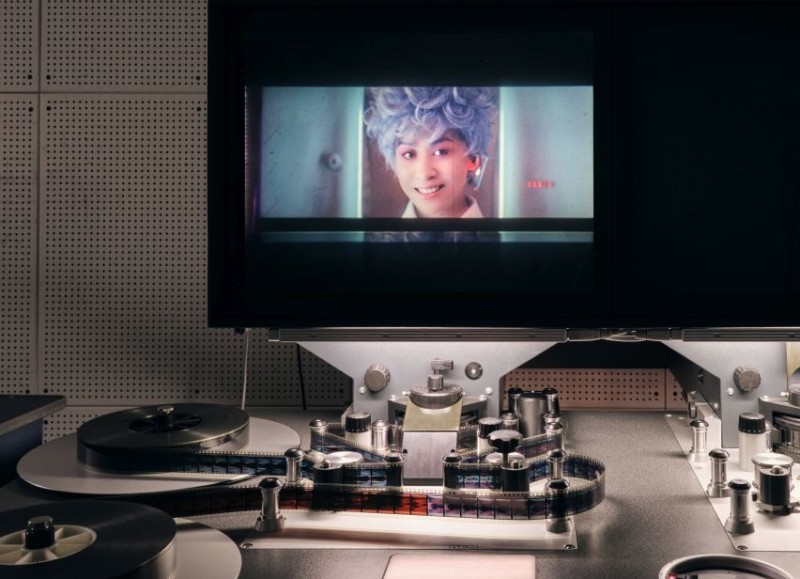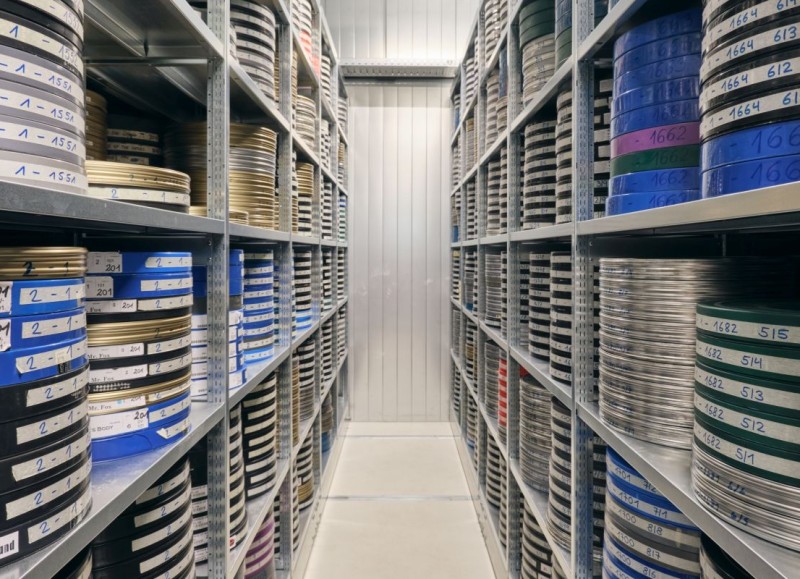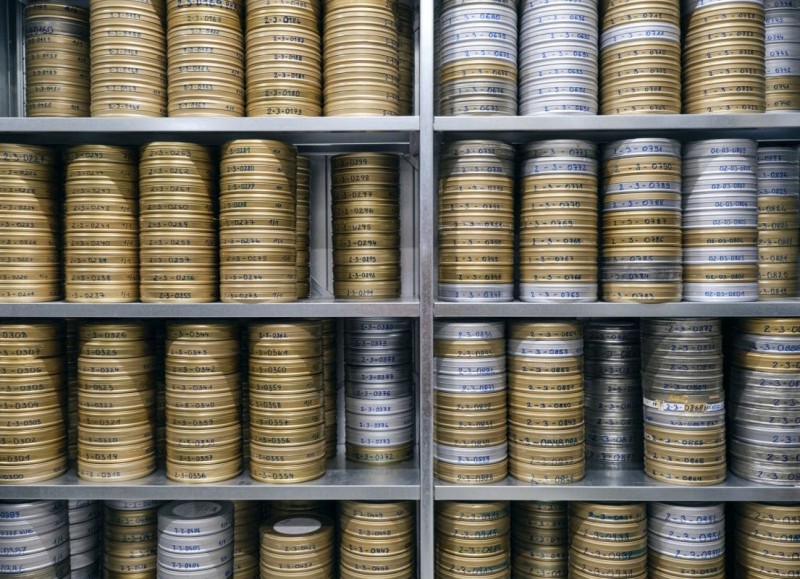The collection, preservation and restoration of films and film-related artifacts is one of the Film Museum's chief responsibilities. Our collection is stored in climate-controlled vaults under the best possible conditions. We regularly undertake special preservation and restoration projects, often in cooperation with partners in Austria and abroad.
The film collection was inaugurated by the museum founders Peter Konlechner and Peter Kubelka in 1964 and has steadily grown since then. It is exemplary in many areas and is held in high regard internationally.
The collection comprises approximately 31,000 films (respectively 38,000 film elements). They cover the entire era of cinematography, from 1893 (films produced by Edison) to the present, and all genres and types of cinema, from classic feature films to scientific films, trailers and commercials.
The collection policy is guided by the principle of representing the medium through outstanding examples of all its variants. In addition, it focusses on several specific collection areas which were established since the founding of the museum.
The representation of the art historical development of film (selected works from all genres and periods) and the representation of film as a historical document (early cinema, anonymous film works, official films such as propaganda films, newsreels, etc.) are underscored by four special collections:
- the international heritage of independent, avant-garde and non-industrial film
- avant-garde and independent film in Austria since 1950
- film exile: the transnational film oeuvre of Central and Eastern European émigrés
- films from Soviet Russia made between 1918 to 1945
The holdings of revolutionary Soviet Cinema contain the most comprehensive collection of films by Dziga Vertov outside Russia, as well as large collections of works by Lev Kulešov, Sergej Eisenstein, Vsevolod Pudovkin, Aleksandr Dovženko, Grigorij Kozincev and Leonid Trauberg or Fridrich Ėrmler. The New American Cinema collection (Stan Brakhage, Gregory Markopoulos, Michael Snow, Bruce Conner, Paul Sharits, George Landow, Robert Beavers, and many others) is also unique.
The Film Museum also preserves the major works from the history of Independent Filmmaking in Austria. These range from films by Peter Kubelka, Kurt Kren, Ernst Schmidt jr. and Valie Export to contemporary works by artists such as Martin Arnold, Dietmar Brehm, Lisl Ponger, Peter Tscherkassky and Virgil Widrich. The oeuvres of independent "crossover filmmakers" such as John Cook, Michael Pilz or Gustav Deutsch are also part of this collection focus.


